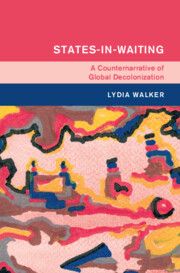Acronyms
AMAX, American Metal Climax mining company, a US-based mining multinational ran by Harold K. and Walter Hochschild in the late 1950s to early 1960s, with holdings and operations across Southern Africa.
NEFA, North East Frontier Agency, a political division within British India and independent India, renamed the Indian state of Arunachal Pradesh in 1972.
SWAPO, the South West African People’s Organization, founded as the Ovambo People’s Organization (or Congress) between 1957 and 1959 in Cape Town. Became the dominant force in the Namibian nationalist movement during the early 1960s. As SWAPO, currently the ruling party of independent Namibia since 1990.
SWANU, the South West African National Union, founded while SWAPO was still the Ovambo People’s Organization, a Herero-dominated Namibian nationalist group that came to be identified as ‘communist’ and lost out to SWAPO in their struggle for international recognition.
Usage
Nagas are usually referred to using their personal names, a practice I follow in States-in-Waiting, so Angami Zapu (AZ) Phizo, is referred to as Phizo, Longri Ao as Longri, etc.
In South Asian History, Vijayalakshmi Pandit is generally referred to as Mrs. Pandit to differentiate her from a title generally associated with her brother, Pandit Jawaharlal Nehru. Jayaprakash Narayan is usually referred to as Jayaprakash or JP to avoid confusion because Narayan as a first or last name is shared by many other important Indian political figures.
Regarding Burma/Myanmar: Burma (independent since 1948) changed its name to Myanmar in 1989. There are significant controversies and political stances involved in which name is employed. Unless referring directly to the current government of Myanmar, I use “Burma” throughout States-in-Waiting because most action takes place before 1989 and because Nagas use the term Burma both historically and in the present day.
Regarding South West Africa/Namibia: The UN General Assembly adopted the name “Namibia” in 1966. Mburumba Kerina allegedly coined the name “Namibia” in conversation with Sukharno sometime between 1960 and 1961; by 1962 many Namibian nationalists used it, but it was not agreed upon by all. There are arguments against using the term “South West Africa” because of potentially providing legitimacy to an apartheid state, and against using the term “Namibia” anachronistically, before it was in common use, and also arguments about when common use occurred in the years before 1966. Therefore, I use the terms “Namibia” and “South West Africa” on analytical rather than strictly chronological context.
Regarding Peking/Beijing: Following the creation of the People’s Republic of China in 1949, the Chinese government transliterated its capital as Beijing in English. However, Western countries and media continued to use “Peking” until the 1970s and 1980s. “Peking” is the term used by the actors in States-in-Waiting.

